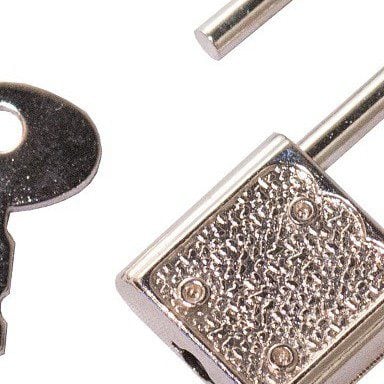- Why Converting Experience to Qualifications is Beneficial
- Overcoming the Frustrations of Having your Experience Recognized
- Recognition of Prior Learning
- Is a Certificate a Qualification?
- The Starting Point is Always a Certificate.
- How Recognition of Learning is Applied.
- Entrepreneurial Qualifications.
- Conclusion
Why Converting Experience to Qualifications is Beneficial
USUALLY IT COMES DOWN TO THESE THREE POINTS:
- The person with experience and no qualifications will generally get to a certain level and then find it hard to advance further.
- The person with qualifications has greater theoretical knowledge, and shows a desire to advance in his career, which will be helped by gaining experience.
- The person with both a qualification and experience is a more attractive proposition for an employer.
If you need a license for work or self employment from a government licensing body they will require both, a qualification and experience.
Overcoming the Frustrations of Having your Experience Recognized
I could say get used to frustrations, because there will be times when you feel like just walking away.
As an old saying goes “Nothing worth having is easy to come by.”
So…
As much as we may not like the work involved, there are many benefits to be had by being qualified.
Lots of them… So keep your mind on the bigger picture.
However it doesn’t mean you are going to be stuck in a classroom all day.
Actually, when you think about it…
Kids going to school are not the only ones who are continuously learning.
Even though we may not be always learning from a book, we are all lifelong learners.
Let’s take a look at one of the better ideas of government for creating a skilled workforce.
Recognition of Prior Learning
Some countries have put steps in place to try and have as skilled a workforce as possible.
The benefits for someone who takes this opportunity opens up a whole new set of opportunities.
- Improved employability
- Increased wages
- Improved self esteem
- Accessing further education
- Mobility- other employers, Migration and much more.
However converting experience to qualifications can be a pain in the you know where.
Particularly for someone who has not completed high school.
It is one of those things you just have to stick with.
Normally the steps after leaving high school are something like this.:-

A Certificate. The first step.
Just know that there can be intensive study involved, depending on the subject.
If you have extensive experience a certificate can be completed in a matter of weeks, provided you are able to prove your experience.
Once you have a certificate then any further courses you undertake should flow reasonably smoothly.
A certificate is usually part of a Diploma, it is up to you how much further you progress.
If you have experience and kept good records of your work, photos, a diary or references, these will put you ahead of students with no or little experience, and you will be able to complete the course in less time than students without experience.
If you continue…
Expect to have weekends or nights spent matching your experience to various questions in a module, providing evidence, that will include written detail of procedures, photos, references, other courses etc.
But it is not all bad.
As I said, Diplomas are usually in parts, (Cert 111, Cert 1V, Diploma), so having a certificate will remove some subjects.
If you have kept reasonable records and learnt your skills well, you could probably complete a module each week or on a weekend.
In areas involving new technology or new processes, you will have to study the subject and sit exams.
If your wondering, Yes, I have had that experience.
One of the main reasons people don’t formalise their experience is an unwillingness to sacrifice their free time to get qualified.
While they think a qualification will be good to have, there are other things to consider like…
The Sunday golf game, fishing, or other social activity or family commitments.
Prioritise your time and you will still find time for social activities.
Really most RPL certificates can be completed within a couple of months.
Diplomas will take longer.
The extra benefits you get, will more than compensate for not having a few drinks with friends in your spare time.
For a Degree it largely depends on the university as to what prior certificated learning they will allocate points to that will reduce the number of modules in the course.
So, although having a Diploma and experience will be a big help in shortening the time frame to get the Degree, expect to do classes and sit exams.
Is a Certificate a Qualification?
YES, it is.
A certificate covers qualifications in many areas, some certified vocations can take 4 to 5 years to complete.
Think traditional:-
- Carpenters –
- Mechanical Engineering trades –
- Hairdressers / Beauticians-
- Tailors and Dressmakers-
- Computer technicians and dozens of other vocations-
On successful completion, the person is deemed to be competent in the field the certificate is issued for.
This will come with an increase in wages and opportunities for further advancement.
The Starting Point is Always a Certificate.
Not everyone gets a trade when they leave high school.
For many their background is leaving school to chase money, and learn skills along the way.
Over time, if they stick to one line of employment, they can become as good at their job as the qualified people doing the same job.
Along the way they most probably did company sponsored courses, if the company was introducing some new technology or process.
Keeping records of these is important, as they all count towards recognition of previous learning.
Even those half day courses you complete. They all count.
EVEN IF…
You have plans to become an entrepreneur and open your own business.
There are still hoops to jump through.
As you may have found out if you have already done this.
How Recognition of Learning is Applied.
Essentially it is a combination of skills and experience obtained outside of formal education and training.
Recognition of prior learning is an assessment process that involves assessment of an individual’s relevant prior learning (including formal, informal and non-formal learning) to determine the credit outcomes of an individual application for credit.
–RPL Meaning as defined by the AQF
Your first step would be to approach an organisation that offers RPL’s and ask wha
My experience will likely be different from yours, but there will be similarities in every country that do this.
- The organization must be a training provider that complies with the RPL and Quality Assurance guidelines set by a state or national body.
- The organization must be able to offer certificate or higher programs in the vocation an RPL is being sought.
Some might say it is only a way to get you to sign up for a certificate course.
Often times it can be a less expensive and a quicker way to get a qualification.
Entrepreneurial Qualifications.
Generally state sponsored colleges offer some skills training in non traditional career areas.
Although they can be overly bureaucratic in their structure and expensive.
Independent colleges are a better alternative for qualifications in traditional and non traditional employment areas, or support roles for people, whose certification or licensing can only be authorised by government.
For example.
- Police
- Lawyers
- Doctors
Still, governments like to have their noses in everything, and do require certificates for competence and licensing for entrepreneurs to ply their wares.
RPL’s ( recognition of prior learning) is not the easiest route to take when wanting a qualification.
While the criteria might be set by a government body, or licensing legislation (often created in consultation with business), it is the interpretation by various colleges that can make things more difficult than they should be.
This will not usually affect the outcomes, but it can lead to you doing more work for some colleges than you would at other colleges.
As I said earlier, there will be times when you are reliving the past weeks work.
Conclusion
If you get the chance to enhance your skills through education, go for it – at the end of the day there is lots to gain and nothing to lose.
If on the other hand you want to formalise some experience, or get some other qualification then go for that too.
There are plenty of colleges that apply credit to courses for completed work experience.
Consider what an acquaintance of mine achieved.
After he completed his carpentry apprenticeship, he traveled to Europe and worked on building sites.
In his spare time he visited museums, churches, parks, anywhere there were statues or sculptures.
15 -20 or so years later he was running his own sculpture exhibitions, and teaching sculpture at a university.
A lot of work to get there, in what is not exactly a mainstream occupation.
While you may not want to go to Europe to learn sculpture under the masters, the IAP College is a reputable college, that may be able to help get you to where you want to be.
Thanks for reading.
If it might help a friend share this.
Michael.










